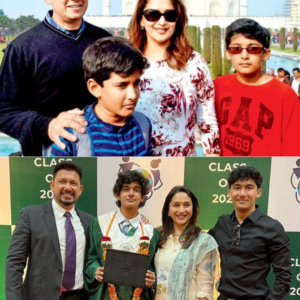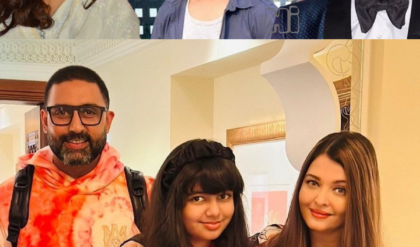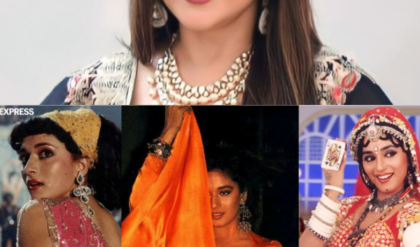Deepika Padukone, one of Bollywood’s most celebrated actresses, has recently made waves with a startling statement about her experiences in Hollywood. Known for her stunning looks and exceptional acting skills, Padukone has always been in the spotlight, but her recent revelations have added a new dimension to her public image.
In a candid interview, Padukone shared her disillusionment with the Hollywood industry. She spoke about the prejudices she faced, particularly the perception that actors from non-Western countries are not as proficient in English. This stereotype, she explained, was something she encountered firsthand during her stint in Hollywood. Despite her impressive command of the language, she was often judged and underestimated, revealing a darker side of the industry that many might not be aware of.
Padukone’s experience isn’t just about cultural barriers but also about the challenges of navigating an industry that often holds different standards and expectations. She recounted a particular incident where a Hollywood executive remarked on her English proficiency in a manner that felt condescending. This experience, she revealed, was indicative of a broader issue within Hollywood—a tendency to view foreign actors through a lens of prejudice rather than merit.
Moreover, Padukone discussed why she chose to step back from Hollywood films after her role in “xXx: Return of Xander Cage.” She explained that the experience left her feeling disheartened and undervalued. The lack of significant roles and the narrow perception of her abilities contributed to her decision to focus more on Bollywood projects. Her choice reflects a broader issue where international talent is sometimes sidelined or pigeonholed based on preconceived notions rather than their actual abilities.

This revelation has sparked a mixed reaction from the public. Some have rallied in support of Padukone, applauding her bravery in addressing such issues openly. Others have been critical, questioning whether her experiences are representative of the entire Hollywood industry or if they stem from individual encounters. The debate highlights the complexities of international representation in Hollywood and the ongoing struggle for equal recognition.
Padukone’s statement not only sheds light on the challenges faced by foreign actors but also prompts a deeper conversation about the systemic issues within the industry. It underscores the need for greater inclusivity and understanding, encouraging a shift towards recognizing talent based on its true merit rather than cultural biases.
In conclusion, Deepika Padukone’s revelations about Hollywood are a stark reminder of the prejudices that exist within the entertainment industry. Her experiences serve as a catalyst for discussing broader issues of representation and equality, urging both Hollywood and audiences to reevaluate how international talent is perceived and valued. As one of Bollywood’s top actresses, Padukone’s insights are invaluable in driving conversations about diversity and inclusivity in global cinema.
News
Shweta Tiwari Talks About Palak Tiwari’s Dating Rumours With Ibrahim Ali Khan
Shweta Tiwari Talks About Palak Tiwari’s Dating Rumours With Ibrahim Ali Khan, ‘She Has An Affair..’ Shweta Tiwari in an recent interview talked about her daughter, Palak Tiwari’s dating speculations with Saif Ali Khan’s son, Ibrahim Ali Khan. Shweta Tiwari, a devoted…
Palak Tiwari and Ibrahim Ali Khan have received their families’ approval for their relationship.
When Palak Tiwari and Ibrahim Ali Khan got approval from their respective families for their relationship Earlier, a report in Bollywood Life revealed that Palak Tiwari and Ibrahim Ali Khan have apparently received approval from their respective parents for their…
Palak Tiwari and Ibrahim Ali Khan are rumored to be secretly dating, enjoying vacations together, with netizens presenting alleged evidence to support the claims!
Palak Tiwari and Ibrahim Ali Khan spark dating rumours with their hot and gorgeous Maldives vacation pictures Palak Tiwari and Ibrahim Ali Khan are reportedly dating each other. However, they have never confirmed this anywhere. Shweta Tiwari’s daughter Palak Tiwari has been…
Amid divorce rumours with Aishwarya Rai, Abhishek Bachchan tells his ‘daughter’ ‘I’m hurt’
watch viral video Actor Abhishek Bachchan tells his ‘daughter’ that he is hurt amid divorce rumours with Aishwarya Rai. Aishwarya Rai and Abhishek Bachchan are in the limelight due to their separation rumours. The two have not confirmed or denied these…
Abhishek Bachchan and Aishwarya Rai’s co-star speaks on the couple’s divorce rumours
Aishwarya Rai and Abhishek Bachchan’s relationship has been under intense public scrutiny lately, driven by persistent rumors of an impending divorce that continue to circulate. Speculation gained momentum as the couple was seen attending various events without wearing their wedding…
The Decision to Pause Her Career, Prioritize Family, and What Madhuri Dixit Has Now
Madhuri Dixit: The Decision to Pause Stardom for Family Life Madhuri Dixit, one of Bollywood’s brightest stars, surprised fans and critics alike when she decided to step away from her flourishing acting career in 1999. Her marriage to Dr. Shriram…
End of content
No more pages to load











